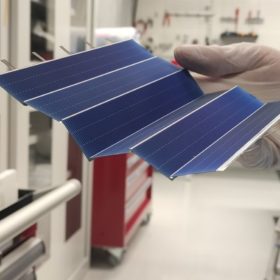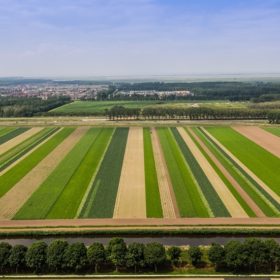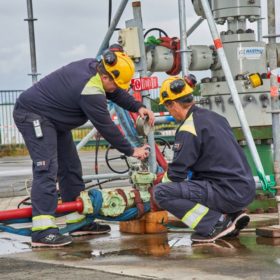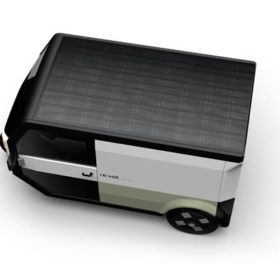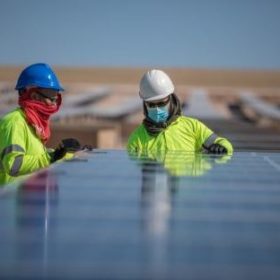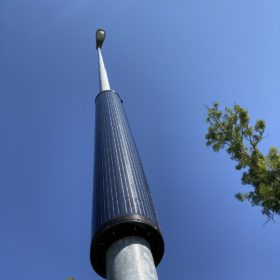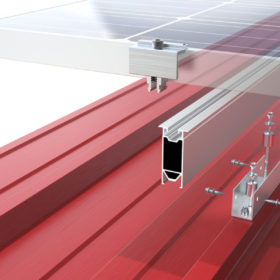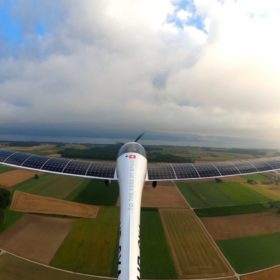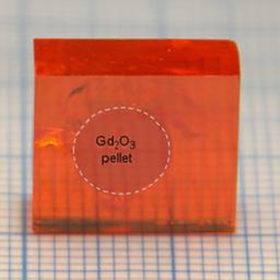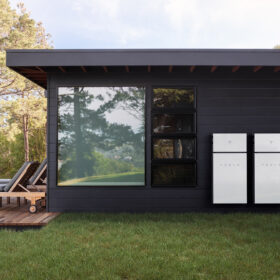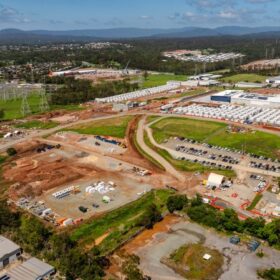Fraunhofer ISE develops solder-free aluminium interconnection tech for shingled PV modules
The German research institute has unveiled a novel interconnection technology for shingled PV modules that eliminates the need for electrically conductive adhesives and screen-printed busbars. It consists of an 8-μm-thick aluminium foil that is joined to the silicon nitride (SiNX) passivation via laser metal bond (LMB). When integrated in a solar module, the efficiency of the new interconnector improved by 0.7%.
Agrivoltaics for strip farming
Vattenfall is leading a Dutch consortium in a research project to assess whether agrivoltaics is also compatible with strip cropping. The company’s head of Solar Development NL, Annemarie Schouten, spoke with pv magazine about the first 0.7 MW pilot project under development in the northern Dutch province of Flevoland.
Dutch gas giant begins storing hydrogen in underground salt cavern
Operated by Gasunie, the underground storage facility is located near Veendam in the province of Groningen and should be fully operational in 2026. Tests will be run until spring 2022.
Solar-powered delivery van with 400 km range
Swedish start-up Clean Motion is seeking to commercialise an electric delivery van that is also powered by IBC solar modules placed on its roof. The vehicle is claimed to have a 400 km range, of which up to 130 km are provided by the PV array.
Lightsource BP secures $2.5bn to develop 20-plus GW of new solar by 2025
The clean energy joint venture, which is half owned by British energy company BP, today said it expects to create around 500 jobs as it ramps up its solar portfolio from less than 4 GW to 25 GW in four years.
Flexible organic PV films on clothing offer charging on the move
The sustainability claims of a crowdfunded ‘e-textile’ range launched by Art by Physicist are borne out by the fact each garment will be printed on demand.
Cylindrical solar panel for street lighting
Developed by an Italian manufacturer, the panel is available in three versions with a power output of 100, 120, and 240 W and has a weight of 5 kg. It is encapsulated in thermoformable plastic technical polymers and can be connected in series with other modules around the same post.
New mounting system for rooftop PV, from Austria
The mounting structure relies on a 5.8m long support rail that does not lie on the roof but is connected directly to a purlin placed below with self-drilling support screws.
Solar-powered airplane to reach the stratosphere
The airplane is powered by 22 square meters of solar cells with an efficiency of up to 24% and 14 kWh of lithium-ion batteries. According to its creators, it can reach an altitude of 25,000m.
Perovskites can also detect nuclear radiation
Scientists in Switzerland found that perovskites can be used to detect thermal neutrons emitted by radioactive devices. Taking advantage of several properties that also make the materials attractive for solar cell applications, the group was able to fabricate a novel device that could have various practical applications, including in energy generation.
